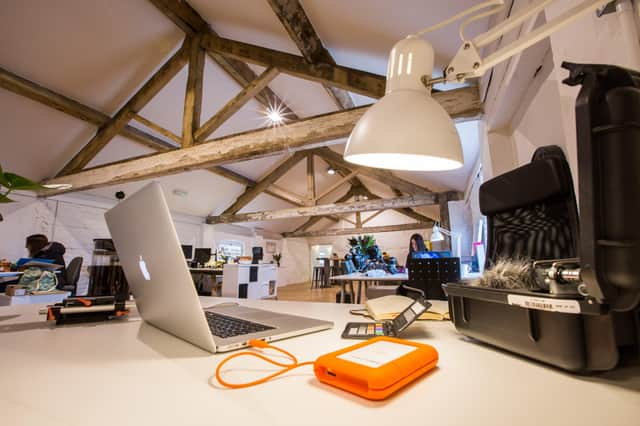What to do with the hard disk from your old PC


It’s actually quite easy to neutralise a computer before getting rid of it because all the sensitive data is contained within a single component – the hard disk. Not only can this be removed in a couple of minutes with just an ordinary screwdriver, but it can be reused in your replacement machine.
In a traditional PC, the hard disk is a mechanical unit encased in tin, which sits inside a caddy and is connected by two cables at the back – one for power, the other for data. If you are junking the machine it came in, it is essential to remove it, because if you don’t someone else will.
Advertisement
Hide AdAdvertisement
Hide AdYou can get at it by unscrewing the side panel of the computer and then removing any screws on the edge of the disk itself and pulling out the plugs. Reversing the process is all that is necessary to repurpose it in your new machine – the advantage of which is that you can make use of any spare space it has left, and get easy access to all your old documents. When you turn the computer on with the old disk inside, Windows should recognise it automatically and arrange it next to your main drive in the File Explorer.
If you can’t or don’t want to pop it inside your new machine, you have two options – the first of which is to resort to the blunt instrument of a hammer to damage the disk casing and thus destroy the data before throwing it in the bin. The alternative is more creative.
Installing your old hard drive into a caddy can turn what used to be an internal component into a portable unit you can carry around with you and “hot swap” from one machine to another.
It costs only around £20 for an external casing that will accommodate the disk and power it from the mains. You can then plug it into any spare USB socket.
Advertisement
Hide AdAdvertisement
Hide AdIt will be bigger and more cumbersome than a disk intended for external use because those use smaller drives to begin with. But it will be every bit as functional, and means you can use the documents from your old PC without the need to transfer them.
Laptops are more complicated to reuse because each one is made differently and the discs are often hard to get at. So before you dispose of your old one or give it to someone else, you should run a software programme to forensically remove any trace of your personal files. This is also true for a desktop computer you plan to sell rather than just junk.
Newer versions of Windows include a reset facility like that on a phone, which in theory preserves the operating system for use by the next owner but removes all traces of personal data. This is not foolproof, though, as the software can only guess where you might have stored it.
A better solution is to use another blunt instrument – in this case a piece of software that takes a fine-tooth comb to every nook and cranny of your hard disk and disinfects the lot. DBAN, which is free for personal use, does a pretty good job of this but it also erases Windows itself, which means the next user will have to reinstall it from scratch. If you have the install disks that came with it this is quite easy to do. If not, it’s easier still – you can simply hand the machine to the new owner “empty” and tell them it’s their problem.
Support The Yorkshire Post and become a subscriber today.
Advertisement
Hide AdAdvertisement
Hide AdYour subscription will help us to continue to bring quality news to the people of Yorkshire. In return, you’ll see fewer ads on site, get free access to our app and receive exclusive members-only offers.
So, please – if you can – pay for our work. Just £5 per month is the starting point. If you think that which we are trying to achieve is worth more, you can pay us what you think we are worth. By doing so, you will be investing in something that is becoming increasingly rare. Independent journalism that cares less about right and left and more about right and wrong. Journalism you can trust.
Thank you
James Mitchinson
Comment Guidelines
National World encourages reader discussion on our stories. User feedback, insights and back-and-forth exchanges add a rich layer of context to reporting. Please review our Community Guidelines before commenting.